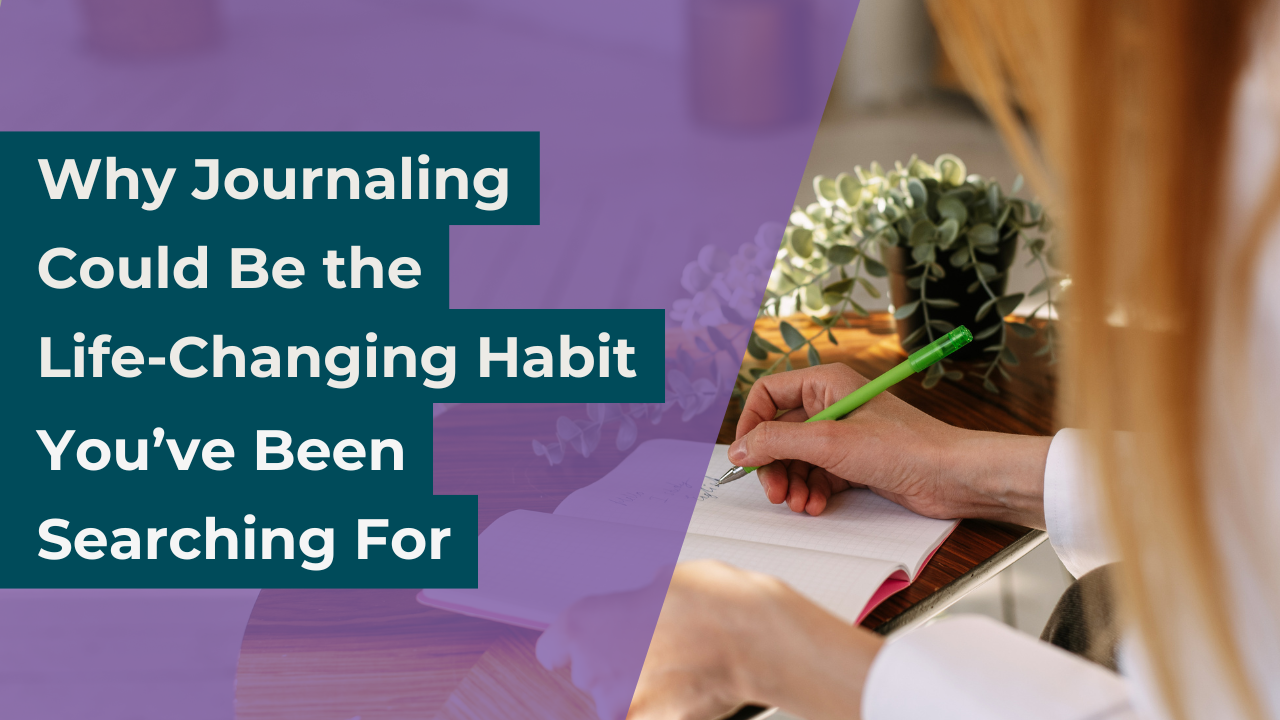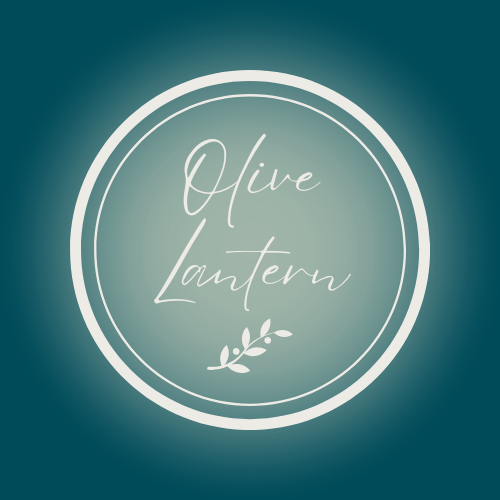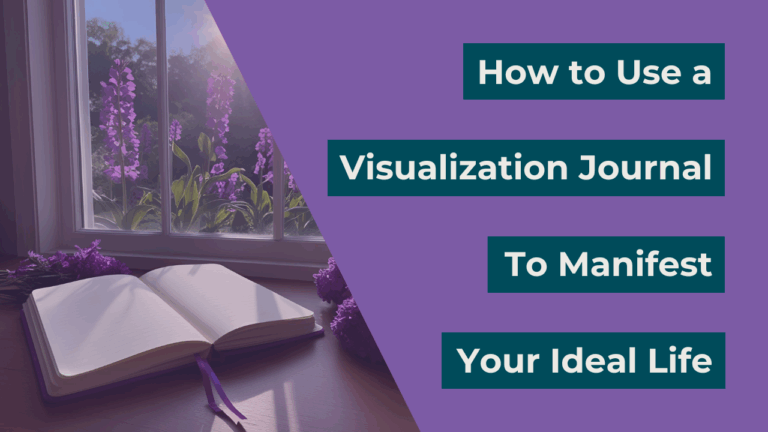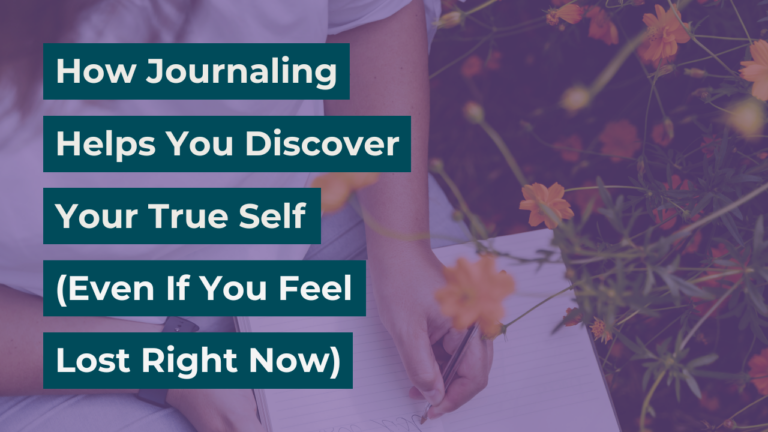Why Journaling Could Be the Life-Changing Habit You’ve Been Searching For

Introduction
Ever feel like life is a blur of endless to-do lists, leaving little time to understand what truly matters to you?
You’re desperate for clarity, balance, and a way to manage the mental clutter that builds up over time.
If only Marie Kondo could come and sort out your mind instead of your closet!
Journaling could be the simple yet transformative habit you’ve been searching for.
What if, by taking a few minutes each day to write, you could:
- uncover insights about yourself,
- reduce stress
- build the confidence
- move toward the life you want
Let’s look at why journaling is such a powerful tool for personal growth, and see how it addresses common challenges we face today., and how it could change your life for the better.
The Challenges Many Women Face in Modern Life
We live in a fast-paced world.
For many women, living in a constant state of emotional clutter and overwhelm has become the norm.
It’s a constant juggling act. You’re forever trying to not drop any balls.
Between the demands of:
- your career
- your family
- your personal life
- everything else you have on your plate
- plus all the things others want to push onto your plate
… it feels like there’s no time left to pause, reflect, or understand your own thoughts and feelings.
This invisible weight of mental overload is being carried around by so many women all day long.
Their minds are full of endless to-do lists, unresolved emotions, and unspoken worries.
Over time, this emotional clutter can leave them feeling disconnected from themselves. They become unsure of what they even want, or how to move forward.
Even though they crave clarity and peace, the idea of trying to find time to focus inward only adds to the pressure. It can feel like another item on their already overwhelming list of responsibilities.
Daily stress and burnout have also become far too common.
More than ever, women are managing multiple roles. Whether they are working professionals, caregivers, or both, they feel a relentless pressure to perform. This can lead to feelings of exhaustion, leaving them with nothing to give.
For instance, a woman in a corporate role may find herself constantly “on”. At work she’s juggling deadlines and meetings, only to return home and then manage the demands of family life.
This nonstop cycle leaves little room for self-care or reflection.
Over time, the stress can manifest as feelings of unfulfillment or even physical symptoms like fatigue or anxiety.
Despite being high achievers, many women feel stuck. They’re too busy putting out fires or meeting others’ expectations to do anything about it.
It’s not just external stressors either.
Women face internal struggles which further complicate the picture, for example:
- self-doubt
- procrastination
- comparing themselves to others
Many women feel trapped in a cycle of negative self-talk.
They question their abilities or worth, which can prevent them from taking meaningful steps toward their goals.
Social media and societal pressures exacerbate this.
Today they’re constantly bombarded with curated images of success, beauty, and achievement.
Much of which feels completely unattainable.
This comparison trap can create a sense of inadequacy. Even women who seem to “have it all together” on the surface experience this.
The result is a deep, nagging feeling of being stuck. They know that something needs to change but are unsure where to start.
It creates a combination of emotional clutter, stress, and self-doubt.
This leaves many women longing for a way to find clarity, confidence, and balance in their lives.
Why Journaling Is the Perfect Solution
Journaling is accessible to almost everyone.
It’s a tool that offers great flexibility, requires minimal time or effort to get started, yet its impact can be profound.
Other personal development practices can feel overwhelming, time-intensive, or expensive in comparison.
Journaling is simple and adaptable to fit into any schedule.
It provides a safe, judgment-free space to unload thoughts and emotions. This helps with creating a sense of relief and mental clarity.
Get that chaotic inner dialogue out of your head, and into organized words on a page. This helps turn emotional clutter into actionable insights.
More than being a place to vent, journaling serves as a path to self-discovery. If you feel disconnected from your goals and unsure of the next steps, journaling helps:
- identify patterns
- clarify priorities
- reconnect you with what actually matters
It’s much more than a tool for introspection.
Journaling provides a practical way to:
- reduce stress
- enhance focus
- build resilience
- face life’s challenges
You can create it a valuable and life changing habit by approaching journaling with structure and intention.
The Transformative Benefits of Journaling
Journaling is much more than just the act of putting pen to paper.
One of the first benefits you may notice is the mental clarity it brings.
When you write down your thoughts, you’re begin organizing them. You’re sorting through the chaos and gaining a clearer understanding of what’s on your mind.
This clarity helps you prioritize tasks, make decisions more confidently, and focus on the things that matter.
Emotionally, journaling helps you to build resilience.
It provides a space to process feelings and develop self-awareness.
Get comfortable writing about your emotions.
They might be:
- joyful
- challenging
- confusing
- heavy
Whatever they are, it is safe to write about them. This can help you to release built up stress and give you a sense of emotional relief.
Over time, this practice can help you reduce anxiety and build confidence. You will be able to look back and see how much you’ve grown and overcome.
Journaling also serves as a powerful accountability tool for achieving goals.
When you set intentions and track your progress on paper, it’s easier to stay focused and motivated.
Even small wins, like completing a task or making a positive change, become achievements you can reflect on.
Tracking progress and celebrating growth can build a sense of momentum in you. This can then help fuel further action and success.
Common Misconceptions About Journaling
Despite its many benefits, some people don’t start journaling because of misconceptions about what it involves.
One of the most common objections is, “I don’t have time.”
Journaling doesn’t need to take up hours of your day; even five to ten minutes can make a significant difference.
It’s about consistency, not quantity.
Another hesitation is, “I don’t know what to write about.”
For beginners, this can feel intimidating.
Using prompts can make the process easy and approachable. For example, you might start with simple questions like:
- What am I grateful for today?
- What’s one thing I want to achieve this week?
Having structured guidance can help you get into the habit of journaling without overthinking it.
Lastly, some people believe that journaling is only for writers or creative individuals.
Not true!
Journaling is for anyone who want to:
- understand themselves better
- reduce stress
- achieve personal growth
Forget about perfect grammar or poetic prose.
All you need is the willingness to show up and write without judgment.
How to Start Journaling in a Way That Works for You
Starting a journaling habit doesn’t have to be overly complicated.
Begin by setting aside five to ten minutes a day.
Do what works best for you.
You could make time in the morning to set intentions, or choose to write in the evening to reflect on the day.
Keep your tools simple: a notebook and pen, or even a digital journaling app if that feels more convenient.
Use prompts to get started and keep the process manageable.
For example, you might write about:
- what you’re grateful for
- describe a challenge you’re facing
- outline your goals for the week
Don’t worry about writing perfectly or sticking to a specific format.
Focus on making the habit consistent and learning to leave your judgement at the door.
Over time, you’ll figure out what works best for you. Stick with it and you will begin to see the benefits of this daily practice.
Conclusion
Journaling is more than just a habit.
It’s a powerful tool for:
- clarity
- confidence
- personal transformation
By setting aside a few minutes each day to write, you can:
- declutter your emotional closet
- find ways to reduce stress
- create a greater sense of purpose and balance in your life
Don’t wait to experience the benefits for yourself.
Start small.
Stay consistent.
This is the start of something big!
Watch as journaling becomes the life-changing habit you’ve been searching for.
If you’re looking for some journal prompts to get you started, click here to grab your free guide.






